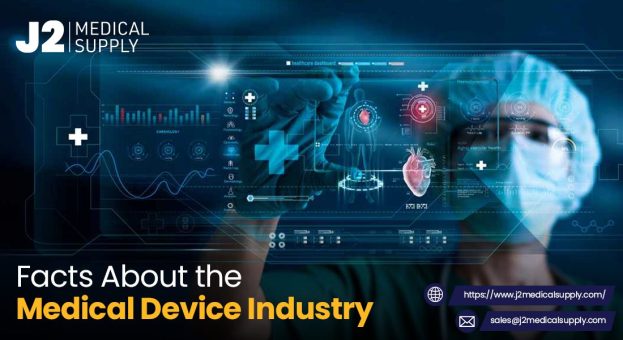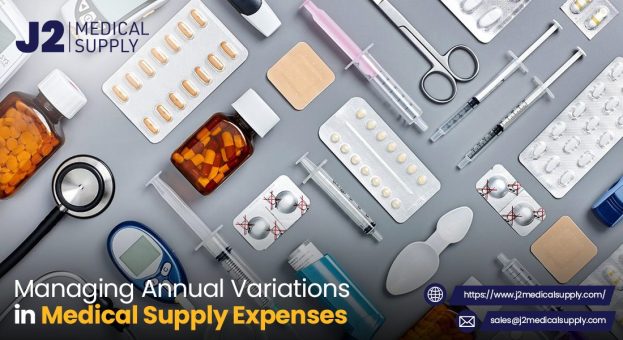The medical device industry is a realm of innovation and technology that often operates behind the curtains of healthcare, making a profound impact on patient care, diagnostics, and treatment. In this exploration, we’ll dive into the fascinating world of medical devices, unraveling their significance, growth, challenges, and potential for the future.
What is a Medical Device?
At its core, a medical device encompasses an array of instruments, apparatuses, machines, and implants designed to aid in medical diagnosis, prevention, treatment, or rehabilitation. From the humble thermometer to the intricate MRI machine, medical devices cater to a wide spectrum of healthcare needs. The diversity within this industry is astounding, ranging from simple devices like adhesive bandages to complex ones such as pacemakers.
Evolution of the Medical Device Industry
The roots of the medical device industry trace back through centuries of human ingenuity. From the earliest surgical tools to the advent of X-ray machines, each innovation has paved the way for the next. The industry’s growth has been symbiotic with technological advancements, leading to devices that are safer, more accurate, and more user-friendly than ever before.
Impact on Healthcare
The impact of medical devices on modern healthcare is immeasurable. They have revolutionized diagnostics, allowing doctors to pinpoint ailments with unprecedented accuracy. Additionally, treatment methods have been transformed, with devices like insulin pumps providing a lifeline for those with diabetes. Patient outcomes have improved, as devices assist in surgeries, monitor vitals, and facilitate communication between patients and medical professionals.
The Booming Medical Device Market
The medical device market is experiencing a robust expansion, driven by a growing aging population and increased demand for cutting-edge healthcare solutions. This trend is also fueled by rapid technological advancements that open doors to new possibilities. With the integration of IoT and AI, medical devices are becoming smarter, capable of real-time data analysis and remote monitoring.
Collaboration with Health Care Providers
Medical device companies work hand-in-hand with healthcare providers to offer comprehensive patient care. These devices are not replacements for healthcare professionals, but rather powerful tools that enhance their abilities. Through collaboration, medical devices are integrated seamlessly into healthcare workflows, ensuring accurate diagnoses and effective treatments.
Advancements in Medical Technology
Recent years have witnessed breathtaking advancements in medical technology. Artificial intelligence now assists in interpreting medical images, revolutionizing diagnostics. Telemedicine has gained prominence, connecting patients with specialists regardless of geographical barriers. Remote patient monitoring devices allow physicians to track progress outside traditional healthcare settings.
Addressing Health Care Costs
Medical devices play a pivotal role in managing healthcare costs. By facilitating early detection and intervention, they can potentially mitigate the need for costly treatments down the line. Preventive measures, made possible through medical devices, can lead to healthier populations and reduced healthcare expenditures.
Regulations and Safety
Given the critical nature of medical devices, stringent regulations are essential to ensure patient safety and device effectiveness. Regulatory bodies rigorously assess these devices before they reach the market, scrutinizing every aspect from design to manufacturing. This oversight is vital in maintaining the trust of both healthcare professionals and patients.
Challenges and Opportunities
While the medical device industry holds immense promise, it also faces challenges. Striking a balance between innovation and safety is a perpetual concern. Additionally, the industry grapples with issues like data security and interoperability. However, these challenges create opportunities for innovation, pushing companies to find novel solutions that benefit patients and providers alike.
The Human Side of Medical Devices
Beyond the technical marvels, medical devices have a profoundly human impact. Stories of individuals regaining their independence with prosthetics or parents finding solace in baby monitors for premature infants highlight the emotional connection between humans and technology. These stories remind us that medical devices are more than just tools; they are enablers of hope and healing.
Environmental Impact
As the world becomes increasingly environmentally conscious, the medical device industry is also embracing sustainability. From using eco-friendly materials in manufacturing to designing devices with minimal environmental impact, efforts are underway to reduce the carbon footprint of medical devices.
Future Projections
Looking ahead, the medical device industry is poised for exciting transformations. Personalized medicine, tailored to an individual’s genetic makeup, promises more effective treatments. Wearable devices that track health metrics seamlessly are becoming commonplace. The future envisions a healthcare landscape where medical devices are seamlessly integrated into daily life.
In conclusion, the medical device industry stands as a beacon of innovation within healthcare. From humble beginnings, it has evolved into a dynamic force that enhances diagnostics, treatment, and patient well-being. As we peer into the future, it’s clear that the partnership between human ingenuity and medical devices will continue to shape the landscape of healthcare. At J2 Medical Supply, we are committed to being a part of this transformative journey, providing essential medical devices that empower healthcare professionals and improve patient lives. Discover the world of medical devices and their remarkable impact – a world that truly operates behind the scenes.




